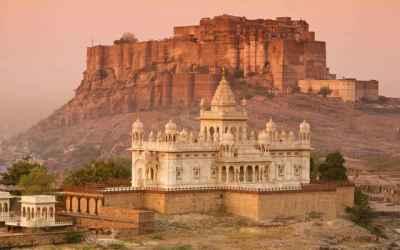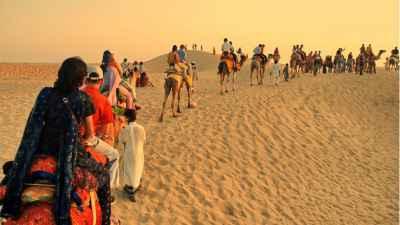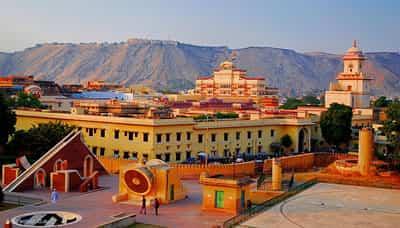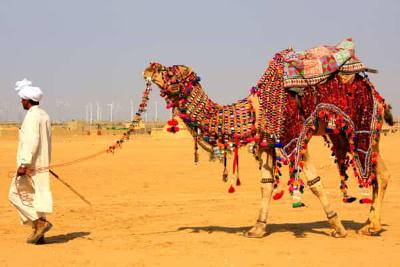Preserving Rajasthan's Wildlife: A Traveler’s Contribution
Rajasthan, often referred to as the "Land of the Kings," is known for its majestic forts, vibrant culture, and rich history. However, lurking beneath the surface of this royal state is a hidden treasure - its diverse wildlife. From the majestic tigers of Ranthambore National Park to the rare bird species at Keoladeo National Park, Rajasthan offers a unique opportunity to witness and contribute to the preservation of its wildlife. In this blog post, we will explore how travelers can make a positive impact and contribute to the conservation efforts in Rajasthan.
1. Choose Sustainable Accommodations
When planning your trip to Rajasthan, opt for eco-friendly and sustainable accommodations. Many hotels and resorts in the region have taken steps towards minimizing their environmental impact by implementing practices such as rainwater harvesting, solar power, waste management, and organic farming. By choosing to stay at these eco-conscious establishments, you are indirectly supporting the conservation efforts in the region.
2. Visit Wildlife Reserves and National Parks
Rajasthan is home to several wildlife reserves and national parks that are dedicated to preserving the rich biodiversity of the region. Ranthambore National Park, located in the Sawai Madhopur district, is famous for its tiger population and offers thrilling wildlife safaris. Sariska Tiger Reserve, situated in the Alwar district, is another prominent wildlife destination that is home to a wide range of flora and fauna.
When visiting these wildlife reserves and national parks, make sure to follow the rules and regulations set by the authorities. Avoid littering, maintain a safe distance from the animals, and refrain from feeding or disturbing them. Responsible tourism ensures the well-being of the wildlife and their habitats.
3. Support Local Conservation Initiatives
Several NGOs and conservation organizations in Rajasthan are working tirelessly to protect and preserve the wildlife of the region. These organizations undertake various initiatives such as anti-poaching campaigns, habitat restoration, and community engagement programs. As a traveler, you can actively support these initiatives by donating to these organizations or volunteering your time and skills.
Additionally, many wildlife reserves and national parks offer opportunities for visitors to participate in conservation activities. You can join hands with the park authorities and contribute to activities such as tree plantation drives or animal census surveys. By actively participating in these initiatives, you become an integral part of the conservation efforts.
4. Practice Responsible Wildlife Photography
Photography is an integral part of any wildlife adventure, and Rajasthan offers ample opportunities for capturing breathtaking moments. However, it is essential to practice responsible wildlife photography to ensure the well-being of the animals. Maintain a safe distance from the animals, use telephoto lenses instead of disturbing them for a close-up shot, and avoid using flash photography.
Additionally, refrain from editing or manipulating wildlife photographs to create false or unnatural imagery. The true beauty of wildlife lies in its natural habitat, and it is essential to respect and preserve that integrity through photography.
5. Spread Awareness
Lastly, as a traveler, you have the power to spread awareness about the importance of wildlife conservation. Share your experiences and insights through social media, blogs, or any other platform. Educate others about the rich biodiversity of Rajasthan and the need to protect it for future generations.
Encourage your friends and family to visit wildlife reserves and national parks and make responsible choices. Together, we can create a ripple effect that contributes to the preservation of Rajasthan's wildlife.
Conclusion
Rajasthan is not only a haven for history buffs but also a paradise for wildlife enthusiasts. By making conscious choices and actively participating in conservation activities, travelers can contribute to the preservation of the vast and diverse wildlife of Rajasthan. Let us join hands and become stewards of these incredible creatures and their habitats, ensuring that future generations can continue to marvel at the wonders of Rajasthan's wildlife.
Share this blog post with your friends and family, and let's inspire others to make a positive impact on Rajasthan's wildlife conservation efforts.
Disclaimer : The information provided in this blog is for general informational purposes only. While we strive to keep the content accurate and updated, TravelSetu assumes no liability for errors or omissions. If you believe any part of this blog infringes your rights or causes concern, please notify us immediately at info[at]travelsetu[dot]com so that appropriate action can be taken.







